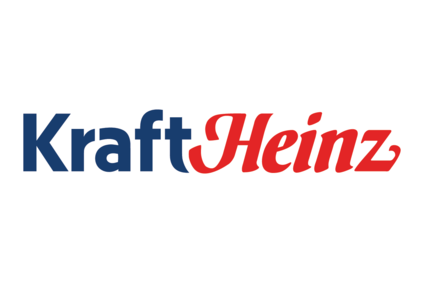
Kraft Foods Group and HJ Heinz both booked lower sales in the second quarter of the year, newly-combined Kraft Heinz Co. has said.
Kraft Heinz Co., officially formed after the end of the second quarter, yesterday (11 August) provided details for the performance of the individual companies for the periods ending 27 June and 28 June respectively.

Discover B2B Marketing That Performs
Combine business intelligence and editorial excellence to reach engaged professionals across 36 leading media platforms.
At Kraft, sales fell to US$4.5bn from $4.7bn. Foreign exchange had some impact for the group, which largely sells in the US and Canada. However, on an organic basis, sales dropped 3.3%, driven by a decline in volume/mix.
The more global Heinz was more affected by currency fluctuation. Group sales fell 4.1% to $2.6bn. Heinz pointed to a 9.4 percentage point impact from foreign exchange translation.
On an organic basis, Heinz's sales rose 5.9%, with a 4.2 point boost from prices. Volumes were up 1.7 points, driven by higher inventory stock at US retailers in the first quarter of 2014 prior to the group's implementation of SAP.
Kraft reported higher net income of $551m for its second quarter, compared with $482m a year earlier. Spending on cost-saving programmes and on the merger with Heinz was offset by an asset sales and gains from hedging, the Jell-O maker said. Operating income increased to $923m from $874m.

US Tariffs are shifting - will you react or anticipate?
Don’t let policy changes catch you off guard. Stay proactive with real-time data and expert analysis.
By GlobalDataHeinz, meanwhile, posted a loss for its second quarter of $160m compared with a profit of $135m a year earlier, as a result of higher interest expenses and a foreign exchange devaluation loss related to the ketchup group's Venezuelan operation.
However, Heinz's operating income was higher at $444m compared with $374m year-on-year. Adjusted EBITDA increased 6.7% to $739m thanks to increased sales in North America and Venezuela, moves to improve its cost of goods sold and cut its SG&A expenses.
Kraft Heinz said it remained confident in its ability to deliver against its initial financial expectations for the merger, including its expectation to generate run-rate cost savings of $1.5 billion by the end of 2017 but "as a matter of practice" does not expect to issue or update earnings guidance going forward.





